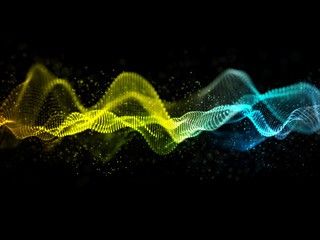SOCIOLOGY OF MUSIC





The course, part of the teachings in Music of the Master’s degree program in “DAMS – Theatre, Music, Dance,” focuses on the ecology of sounds, addressing the topic of noise pollution that permeates our daily lives. Starting from the concept of soundscapes, it aims to analyse the potential ecological dimension of sounds in general and music in particular. Moreover, it introduces the concept of sonic self to highlight the relationship between music, sounds, and subjectivity.
In its traditional form, the sociology of music has centred on studying the relationship between music and society, with a dual focus on “musical/sonic agency” in everyday life and the social construction of musical texts and musicians’ careers. This course combines traditional sociological reflections on these themes with more innovative approaches and is structured into four parts. The first part provides students with the tools to understand how music constructs social meanings related to experience, time, and space, focusing on the concepts of soundscapes and the soundtracks of everyday life. Music, in everyday life, can serve as a mnemonic, emotional, and cognitive device, pre-constructing worlds in which our experience takes place. Some songs have contributed to the defence of civil rights globally, while others have marked specific historical and/or political eras. In particular, this section of the course also examines the relationship between music and individual memory, as well as music and collective memories (for example, in relation to social movements), with particular attention to the sonic composition of cultural traumas within a community. The second part of the course complicates the concept of musical genius, examining its social components. It explores the intersections between genius, ethnicity, gender, and social class. The third part addresses the relationship between music and educational processes, highlighting how music can become a crucial resource for learning, particularly within non-traditional pedagogies. This section also explores the therapeutic potential of music, as demonstrated by research in music therapy. Sounds and music can contribute significantly to healing trauma, degenerative diseases, and even larger institutional and social contexts. Finally, the fourth part of the course explores the changes in music production and consumption related to the rise of digital platforms. It examines emerging processes of potential colonisation and creolisation of sonic and musical imaginaries, with particular attention to the concepts of soundscape and sonic agency.
This course enables students to acquire specific skills related to the institutional and social processes underlying the production of musical meanings, focusing on the intersection between production and consumption processes. Additionally, students gain both theoretical and empirical competencies to analyse the social and institutional dynamics that make musical production possible. This includes the intersection of technologies with creative processes, as well as the significant impact digital platforms have on music consumption. Lastly, students will develop a deeper understanding of the various forms of sonic agency and increase their awareness of the impact of different soundscapes encountered in everyday life.





